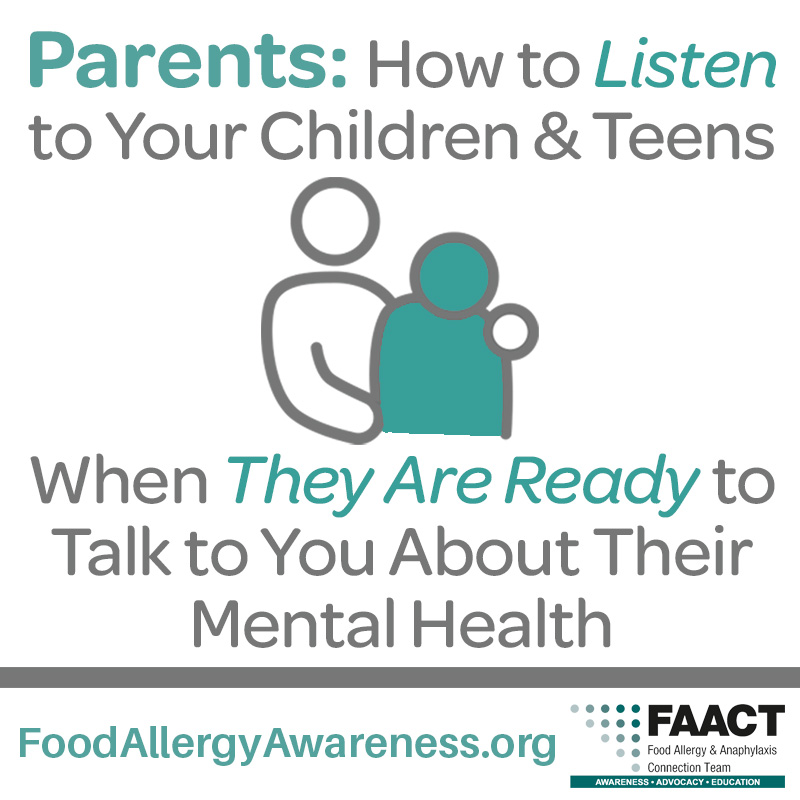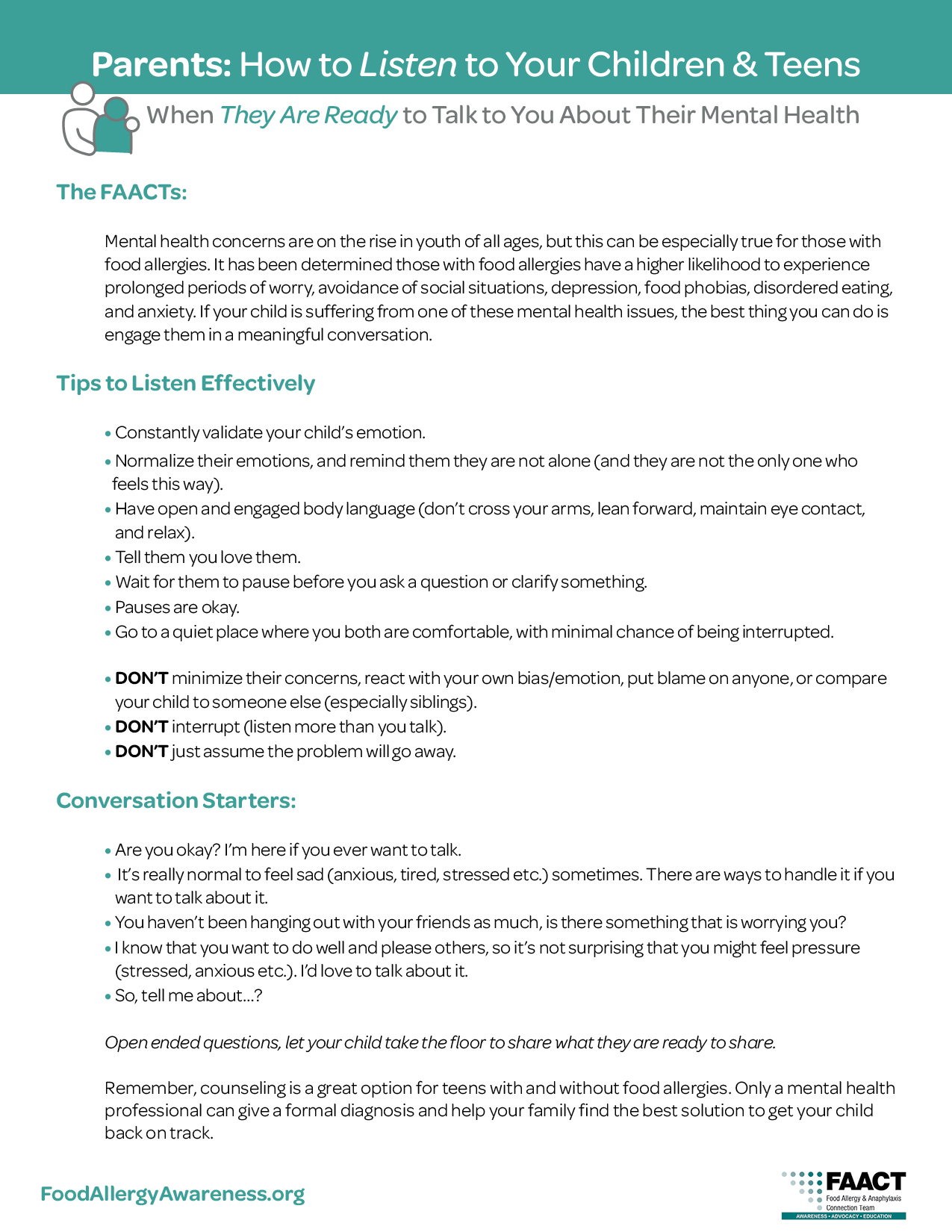Behavioral Health
For Parents/Caregivers
Back to Category View
Parents: How to Listen to Your Children and Teens When They Are Ready to Talk to You About Their Mental Health
The FAACTs:
Mental health concerns are on the rise in youth of all ages, but this can be especially true for those with food allergies. It has been determined those with food allergies have a higher likelihood to experience prolonged periods of worry, avoidance of social situations, depression, food phobias, disordered eating, and anxiety. If your child is suffering from one of these mental health issues, the best thing you can do is engage them in a meaningful conversation.
Tips to Listen Effectively:
- Constantly validate your child’s emotion.
- Normalize their emotions, and remind them they are not alone (and they are not the only one who feels this way).
- Have open and engaged body language (don’t cross your arms, lean forward, maintain eye contact, and relax).
- Tell them you love them.
- Wait for them to pause before you ask a question or clarify something.
- Pauses are okay.
- Go to a quiet place where you both are comfortable, with minimal chance of being interrupted.
- DON'T minimize their concerns, react with your own bias/emotion, put blame on anyone, or compare your child to someone else (especially siblings).
- DON’T interrupt (listen more than you talk).
- DON’T just assume the problem will go away.
Conversation Starters:
- Are you okay? I’m here if you ever want to talk.
- It’s really normal to feel sad (anxious, tired, stressed etc.) sometimes. There are ways to handle it if you want to talk about it.
- You haven't been hanging out with your friends as much, is there something that is worrying you?
- I know that you want to do well and please others, so it’s not surprising that you might feel pressure (stressed, anxious etc.). I'd love to talk about it.
- So, tell me about…?
Open ended questions, let your child take the floor to share what they are ready to share.
Remember, counseling is a great option for teens with and without food allergies. Only a behavioral health professional can give a formal diagnosis and help your family find the best solution to get your child back on track.
Download FAACT's Parents: How to Listent to Your Children & Teens handout.
